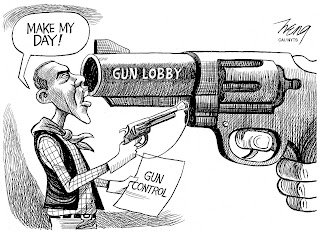A634.3.4.RB - The Harder They Fall
Using concepts from the Kramer (2003) article as a baseline, share your insights on dilemmas that happen: in society, at work, and in your life.
Probably the most overwhelming
factor that causes great leaders to come crashing down is a lack of mindfulness
in my opinion. A lack of mindfulness gets them into a vicious cycle of prosperity
that pressures further prosperity, and when it cannot be attained without unethical
practices that stray from the core construct, well then it all comes crashing
down. This very same pressure applies to elite athletes when they plateau, to
steroid or not creeps in. I think all great leaders have had this happen to
them at one point or another, but some learn and unfortunately others get
caught in the vicious cycle repeatedly.
When reflecting about prosperity the
best leaders understand that with every great gain something or someone has to
be paying the price. For example, as social media has basically taken over the world
in the past ten years, so has the lack of personal interaction, as well as
sense of common decency to each other. When it comes to ANY media platform, my
stance is that if you aren't willing to say something to a person's face, then
don't put it on blast anywhere else. You see this drama playing out in
corporate demise all the time. Countless hours of unproductive behaviors that
stem from social media postings are running rampant these days. You even see
great leaders manipulating volumes of followers through these platforms that
cause destructive behaviors all the time.
Another reason for the great fall is
that all too often ambition can blind leaders to a myriad of sacrifices that
employees unfortunately succumb. Great leaders sometimes fail to understand
that their organization can also benefit greatly when they themselves give back
their employees through guidance, mentoring, and coaching. Don't always be the
one who asks, but who actually gives and also not just up the pole but rather
laterally and down as well. The greatest leaders who know the great pitfall of
not being mindful is all about both personal and cognitive sustainability.
Moreover, these leaders know that ambitious subordinate leaders are highly
susceptible to this very same trap and should be advised as appropriate.
Kramer (2003) notes that a major
pitfall is seen through those who don't follow a pre-established set of rules
because this is seen as lacking creative and critical thought. If everyone just
follows the rules, then how else is a person or organization going to achieve
comparative or competitive advantage? These individuals say, don't follow the rules
because that is in-fact the very necessity to achieve greatness, but in-fact
challenge subordinates on the other hand to follow the rules so proper order
can be maintained. Lastly Kramer (2003) mentions that certain power pleasures
start to take over the ambitious and that's when the unethical behaviors sneak in
because they need more and more, it's basically a form of addiction.
Finally for me it's all about a few
core concept to follow and they are to keep things simple, honest, yet still
creative, but most important sustainable. Without all of these facets combined
a great and enjoyable high is doomed to come crashing down. Now here's where
the greatest are found, at the very bottom, knowing the high and the unethical
behaviors that ensued, and how to alter them in order to best dust themselves
off and ultimately start climbing all over again.
Kramer, R. M. (2003). THE HARDER THEY FALL. (cover story). Harvard Business Review, 81(10), 58–66.
LaFollette, H. (2006). The practice of ethics.



Comments
Post a Comment